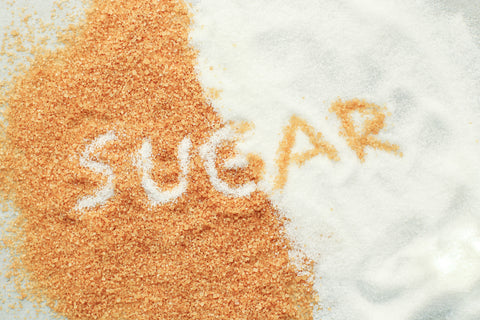Attention deficit hyperactivity disorder (ADHD) is a condition that affects behaviour that can have devastating effects on both children and adults.
Children with ADHD (mostly boys) find it difficult to control their hyperactive and/or impulsive behaviour. They are usually inattentive, have problems concentrating, and tend to do things without considering the consequences.
Up to 50 percent of individuals diagnosed with ADHD in childhood continue to have symptoms into adulthood.

Possible Causes of ADHD
Studies have shown a range of many factors that may increase the risk of ADHD:
- Brain damage during pregnancy caused by toxins (mercury, lead, etc.), drinking alcohol, smoking cigarettes, or using other stimulants during pregnancy and breastfeeding.
- Drinking water from plastic containers and unfiltered properly tap water.
- Low levels of vitamins and minerals. Insufficient daily intake of magnesium, zinc, vitamin D, B12, B complex, and antioxidants can contribute to all mental disorders, learning disabilities, anxiety disorders, and ADHD.
- Serotonin deficiency.
- Hormonal imbalance.
- Viral infections.
- Brain injury.
- Genetic mutations.
- Exposure to lead and various harmful chemicals during childhood.
- ADHD symptoms can be triggered by allergic reactions to gluten, dairy, and different chemicals found in food, cosmetics, and washing liquids. For instance, casein (milk protein) contains opiate-like substances that may contribute to the development of ADHD.
- Artificial sweeteners.
- Refined carbohydrates (sugar, white flour products, refined grains, sodas, pizza, etc.).
- Pesticide exposure has been linked with ADHD.
Diagnosis of ADHA
Diagnosing ADHD depends on several factors. To be diagnosed with ADHD, a child should reveal the following:
- Show symptoms continuously for at least six months
- Begin to show symptoms before the age of twelve
- Show symptoms in at least two different settings. For example, at home and at school. This rule helps to eliminate the possibility that the behaviour is just a reaction to one specific environment.
Prevention of ADHD During Pregnancy
Mothers during pregnancy and breastfeeding are encouraged to implement the following principles to reduce the risk of ADHD in their children:
- Avoid stimulants (alcohol, smoking, caffeine, etc.) before conception and during pregnancy and breastfeeding.
- Go on a healthy unrefined plant-based diet or at least significantly reduce consumption of all animal foods while increasing the intake of unrefined plant foods (especially raw and steamed vegetables).
- Instead of margarine and refined pro-inflammatory oils (corn oil, sunflower oil, soya oil, vegetable oil, etc.) use raw organic coconut oil and cold-pressed olive oil.
- Replace refined sugar, artificial sweeteners, and high fructose/glucose syrup with raw organic honey, dried fruits, coconut sugar, xylitol, erythritol, and stevia (using them interchangeably).
- Avoid wheat products.
- Drink 6 to 8 glasses of properly filtered or distilled water (with a pinch of sea salt). Avoid unfiltered tap water as well as water and food stored in plastic containers.
- Take nutritional supplements: A good Multivitamin, such as Pregnazon Complete (HealthAid). In addition to Pregnazon Complete, all pregnant women should take: Vitamin D3 (3000-5000 IU daily), Magnesium citrate powder or another good magnesium (200 mg twice daily), Vitamin B12 (1000 mcg daily after breakfast in the form of sublingual methylcobalamin).
- Take organic Chlorella powder or tablets to detox the body.
- Use a good Probiotic formula such as UltraProbio or FemProbio.
- Omega-3 (flaxseed oil or a good quality fish oil).

Lifestyle and Diet in ADHD
- Going on a very healthy high-nutrient unrefined plant-based diet was shown to be very helpful in ADHD.
- Studies suggest that when cow’s milk and dairy products were removed from the diet of hyperactive boys, symptoms improved (1). The diet also eliminated artificial colours, flavours, chocolate, MSG and caffeine.
- A scientist by the name Feingold reported a significant improvement after recommending parents to eliminate any food or drink that comes in a can or a plastic box. They were encouraged to serve their children only natural, fresh, and homemade foods.
- Avoid sugar, high fructose/glucose syrup, processed foods, dairy, chocolate, and anything with caffeine (2).
- Avoid gluten (especially wheat products) (3).
- Replace soft drinks and fruit juices with filtered or distilled water and vegetable juices.
- Instead of refined pro-inflammatory oils (corn oil, sunflower oil, soya oil, vegetable oil, etc.) and margarine, use raw organic coconut oil and cold-pressed olive oil.
- Exercising, walking and spending more time in nature help reduce ADHD symptoms.
Nutritional Supplements for ADHD
- Since ADHD increases oxidative stress and decreases detoxification (4), it is very important to detoxify the body. It can be done by taking Super Greens (HealthAid), chlorella, and Gastone (activated charcoal) as well as drinking distilled water, vegetable juices, and herbal teas. Also, antioxidants (such as NAC and alpha lipoic acid) are effective in supporting detoxification.
- Children and adults with ADHD are often deficient in the antioxidant glutathione which plays the most important role in detoxifying and regenerating the body. In order to increase glutathione, take alpha lipoic acid, l-cysteine or NAC (5), magnesium, milk thistle, vitamin B6, folate, selenium, vitamin E, and vitamin C.
- Vitamin D3 (adults: 5,000 IU; children: 2,000 – 3,000 IU daily with a meal). When African children move to America they develop higher rates of ADHD. It is believed that one of the reasons is vitamin D deficiency.
- Take magnesium citrate or another well-absorbed supplemental magnesium (200 mg twice daily). The more vitamin D3 is used the more magnesium must be taken as D3 requires magnesium for its own conversion in the kidneys.
- Magnesium can be used also externally. Dr Caorlyn Dean demonstrated great benefits of magnesium after soaking children with ADHD in warm bath water with added magnesium (6).
- Researchers claim that “zinc supplementation is safe and effective in helping people with ADHD” (7). 15 mg of supplemental zinc twice daily seems to be the best dosage for most people. Take zinc always after meals. Keep in mind that if you take a multivitamin, such as Brainvit (HealthAid), you probably don't need an additional zinc supplementation as Brainvit contains 20 mg of zinc per daily dose of two tablets.
- Omega-3 fish oil: 750-1000 mg twice daily with meals. It is high in EPA and DHA (DHA is more important for the brain function while EPA helps reduce brain inflammation). Research has confirmed that omega-3 fatty acids can improve the symptoms of ADHD (8).
- Supplementation with amino acid l-carnitine for eight weeks resulted in improvement in 54% of a group of boys with ADHD. The amount of l-carnitine used in this study was 100 mg per two pounds of body weight per day (9).
- Dr Carl Pfeiffer claims that the amino acid glycine may help decrease sugar cravings and anger in children with ADHD.
- Take 50 mg of 5-HTP (a form of tryptophan) in the afternoon and another 50 mg before bed. Tryptophan is the precursor to serotonin (the natural feel-good and calming hormone).
- Amino acids phenylalanine and tyrosine, being precursors of dopamine, may help improve focus and motivation.
- Vitamin B complex (B1, B2, B3, B5, B6, B12, and Folate) play important role in supporting nerve and brain function.
- Beneficial calming herbs: ashwagandha, tulsi (holy basil), lemon balm, turmeric (organic), chamomile, and hops.
- Iodine (from kelp) helps maintain normal brain and thyroid function.
- Use a good-quality probiotic formula, such as KidzProbio (for children) and UltraProbio or DailyProbio (for adults). It is believed that ADHD could be also linked to the lack of probiotic bacteria and negative changes in the colon (leaky gut, IBD, and chronic constipation).
- Vitamin C: 1000-2000mg twice or three times daily with meals. For those with a sensitive stomach, calcium ascorbate (Esterfied) is a better form of vitamin C.
- A herbal formula containing ashwagandha, gotu kola, spirulina, peony, brahmi, and lemon balm improved focus, response time consistency and speed in children with ADHD (10).
- Methylcobalamin (must be sublingual): 500-1000 mcg (children), 1000-2000 mcg (adults) daily under the tongue. Some studies demonstrated the effectiveness of this form of vitamin B12 in reducing signs of ADHD (11).
- Alpha lipoic acid (regarded as the best supplemental antioxidant): 250 to 600mg twice daily.
Sources
- Dietary replacement in preschool-aged hyperactive boys - PubMed (nih.gov)
- A dose-response relationship was found between sugar-sweetened beverages intake and ADHD
- A Gluten and casein-free diet may have a therapeutic effect in autism spectrum and attention deficit disorders
- A prospective study of transsulfurationbiomarkers in autistic disorders - PubMed (nih.gov)
-
Magnesium Decreases Hyperactivity in ADHD Children - Riordan Clinic
- Zinc for Attention-Deficit/Hyperactivity Disorder: Placebo-Controlled Double-Blind Pilot Trial Alone and Combined with Amphetamine - PMC (nih.gov)
- EFA supplementation in children with inattention, hyperactivity, and (greenmedinfo.com)
- Efficacy of carnitine in the treatment of children with attention-deficit hyperactivity disorder - PubMed (nih.gov)
- A compound herbal preparation (CHP) in the treatment of children with ADHD: a randomized controlled trial - PubMed (nih.gov)
Images credit: Image by Freepik Image by Freepik Image by Freepik
Any information or product suggested on this website is not intended to diagnose, treat, cure or prevent any medical condition. Never disregard medical advice or delay in seeking it because of something you have read on this website. Consult your primary healthcare physician before using any supplements or making any changes to your regime.




